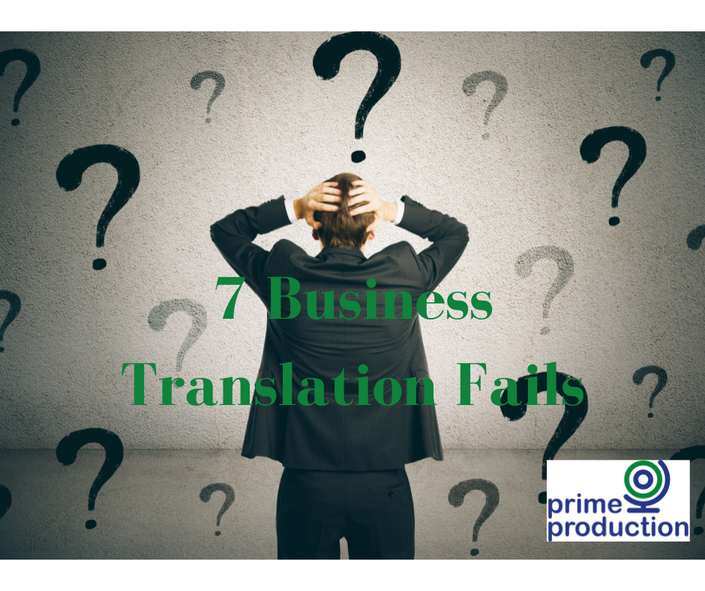7 Biggest Business Translation Fails in History

Business translation fails can occur when translating marketing materials, product names, slogans, or even entire brand identities from one language to another.
There have been several notable business translation fails throughout history that have resulted in embarrassing or costly consequences for the companies involved. Here are some examples:
1) Chevrolet‘s “Nova” in Spanish-speaking countries: In the 1960s, Chevrolet introduced their car model “Nova” in Latin American countries. However, “no va” in Spanish translates to “it doesn’t go.” This unfortunate translation resulted in poor sales because the car’s name implied it was unreliable.
2) Pepsi‘s “Come Alive with the Pepsi Generation” in China: In the late 1960s, Pepsi launched a marketing campaign with the slogan “Come Alive with the Pepsi Generation.” When translated into Chinese, it became “Pepsi brings your ancestors back from the grave.” The cultural reference to ancestors was not well-received, and the slogan failed to resonate with Chinese consumers.
3) Gerber‘s baby food in Africa: Gerber, a popular baby food brand, used its standard packaging in Africa, featuring a cute baby’s face. However, in many African countries, food packaging typically displays images of the contents, not the consumer. This led to confusion, as some people thought the product contained ground-up babies.
4) HSBC‘s “Do Nothing” campaign in the United States: In 2009, HSBC launched a campaign with the slogan “Assume Nothing.” However, due to a mistranslation, it was mistakenly translated as “Do Nothing” in several languages, including Chinese. The unintended message gave the impression that HSBC was advocating laziness and lack of effort.
5) Electrolux: The Swedish appliance manufacturer Electrolux entered the American market with the slogan “Nothing sucks like an Electrolux.” In English, the word “sucks” has negative connotations, while in Swedish, the slogan meant “Nothing cleans like an Electrolux.” The unintended meaning led to a significant loss in sales.
6) When Schweppes Tonic Water launched its product in Italy, it was also literally translated (a trend that obviously doesn’t always work). That literal translation turned out to be: “Schweppes Toilet Water.”
7) KFC‘s “Finger Lickin’ Good” in China: KFC’s famous slogan “Finger Lickin’ Good” was translated into Chinese as “We’ll Eat Your Fingers Off.” The literal translation had a gruesome connotation and was not well-received by Chinese consumers.
These examples highlight the importance of professional translation and cultural sensitivity in global business operations. Failing to understand the local language and culture can lead to miscommunication, negative perceptions, and ultimately, financial losses.

Leave a Reply